News
Reps Okay State Police Bill For Second Reading
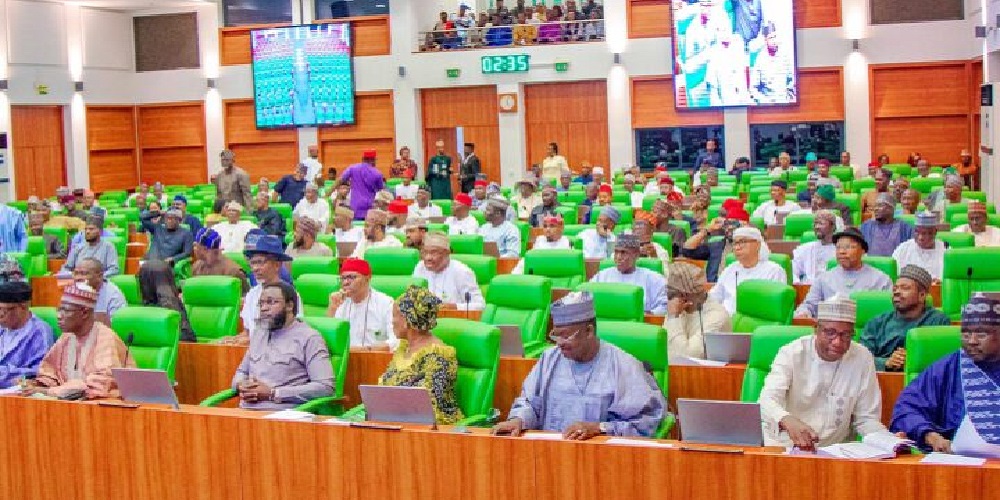
News
LP crisis: Abure-led NEC threatens to sanction Gov Otti, Peter Obi

The Comrade Julius Abure-led National Executive Committee (NEC) of the Labour Party (LP), has threatened to sanction the Abia State Governor, Alex Oti, should he go ahead with the planned “illegal” stakeholders meeting, scheduled to hold on Wednesday, April 9th, 2025.
It also warned the party’s Presidential candidate in the 2023 election, Mr. Peter Obi, against any conduct or utterance which promotes disunity within the party.
The party leadership said it would no longer take kindly to anti-party activities from any member “no matter how highly placed.”
In the same vein, the LP NEC also announced the sack of Hon. Afam Ogene from his position as leader of the party’s caucus in the House of Representatives. In his place, NEC appointed Barr. Ben Eternabene as the new leader.
These derisions were contained in a Communique read by the Party’s National Secretary, Alhaji Umar Farouk, at the end of a NEC meeting held at the party’s National Secretariat, In Abuja, on Monday.
Farouk said, “NEC in session in the exercise of its duties, hereby caution the former presidential candidate of our great party not to participate in any action capable of undermining the peace unity, and integrity of the party as the NEC will not hesitate to issue a stiffer penalty if found culpable.”
The party’s NEC also expressed satisfaction with the resent ruling of the Supreme Court affirming the Supremacy of the party in determining its leadership.
It further stressed that at no point within the Supreme Court judgement did it sack Julius Abure as National Chairman.
Farouk further said, “Accordingly, NEC in session reaffirmed the Nnewi National Convention held on the 27th of March 2024 that produced the current National Working Committee (NWC) members under the chairmanship of Barrister Julius Abure.
“NEC in session condemn in strong terms the activities of the Caretaker Committee illegally established by Alex Otti and Peter Obi in a so-called Stakeholders meeting held on the 4th of September 2024 in Umuahia.
“The Supreme Court admonished party leaders and members of the party to always abide by the constitution of the party.
“NEC noted that Article 14 (4) (B) gives the power to call meetings only to the National Secretary with the approval of the National Chairman.
Accordingly, NEC warned all members to abide by the constitution of the party.”
Speaking specifically about the Abia State Governor, the communique said, “NEC in session notes the various anti-party activities of Gov. Alex Otti, including calling of unauthorized Stakeholders meeting and usurping the powers of NEC.
“He also conducted the LGA Election using another Political Party. The Governor has also intensified his effort to factionalize the party leadership by calling an illegal NEC scheduled to hold on Wednesday.
“The leadership of the Labour Party is also aware of Governor’s plot to cripple our party before moving to another political party where he hopes to contest the 2027 Governorship Election.
“His anti-party activities is unbecoming of a highly respected personality and can no longer be acceptable, NEC stated that it will not hesitate to discipline him in line with Article 19 of the Party’s Constitution.
“NEC in session noted that would not hesitate to discipline any other erring member who violates the party constitution regardless of how big or powerful such individuals may be.
ogene’s removal as LP Caucus leader: “NEC in session reviewed the activities of the House of Representatives Caucus leader, Honourable Victor Adam Ogene and wishes to note as follows:
“That the voice of the current leadership of the party is not being heard in the hallowed lower chambers; that there is a lack of cohesion amongst our members in the House; that the leadership appears to be compromised; and that the ideology and programs of the party are not well represented.
“NEC in session, as a result of the aforementioned decided to relieve Honourable Ogene of that leadership role for dereliction of duty. Consequently, Hon. Barrister Ben Etanabene has been appointed by the NEC in session as the Labour Party’s Caucus Leader in the House of Representatives.”
The NEC subsequently mandated the NWC to communicate the decision to relevant authorities.
It also demanded they Ogene hand over all the party’s properties in his possession, particularly all the financial contributions made so far by other Labour Party lawmakers which are in his possession to the party, and render proper account to the party with immediate effect.
The party vows to go to any length to retrieve all its belongings, including monies that belong to it which Hon. Ogene is holding tight to.
Earlier, in his address of welcome, Abure who chaired the NEC meeting said, “Recent developments within our party, particularly in the aftermath of the Supreme Court’s pronouncement on the leadership matter, have necessitated this gathering.
“ Let me begin by extending our profound appreciation to the Supreme Court of Nigeria for its courageous and principled stance in affirming the supremacy of political parties in managing their internal affairs.
“In its judgement concerning the Labour Party, the apex court unequivocally reasserted that leadership disputes arising within a political party remain within the exclusive purview of the party’s constitution and governance structures.
“ Accordingly, the Court declined jurisdiction in the appeal brought by Senator Nenadi Usman, thereby reinforcing the foundational principle of party autonomy.
“It is, however, regrettable that certain actors, most notably Senators Nenadi Usman and Darlington Nwokocha, have chosen to misrepresent the ruling, deliberately misleading the public and attempting to manufacture confusion through a purported “Caretaker Committee.”
“Let it be stated categorically: this so-called committee is both unconstitutional and illegitimate.
“Those who convened the meeting in Umuahia lacked the legal authority to do so. Neither holds the office of National Chairman nor National Secretary as required by our party’s constitution.
“The Labour Party held a valid National Convention in 2019, whose tenure was constitutionally due to end in June 2023.
“In response to the extraordinary demands of the 2023 general elections, our NEC, meeting in Asaba in April of that year, authorized a one-year extension, pushing the end of tenure to June 9, 2024.
“In line with this resolution and the constitution of our party, a fresh National Convention was duly convened and held on March 27, 2024, in Nnewi, Anambra State.
“All procedures relating to that Convention were properly executed, and multiple court rulings have validated the legitimacy of the convention.
“Furthermore, our Constitution, specifically Articles 12 and 14 of the amended 2024 edition, clearly outlines the structure and authority of the party’s organs.
“Article 14 vests the power to issue notices for meetings of the National Convention, the NEC, and the National Working Committee (NWC) in the National Secretary, but only with the consultation and approval of the National Chairman.
“All proper procedures were followed in the convening of the March 2024 Convention, and the actions taken were both constitutional and widely endorsed.
“Let it be known across the federation and beyond: there is no vacuum in the leadership of the Labour Party.
“The National Working Committee, under my chairmanship, remains the recognized and legitimate leadership body of our party.
“We shall not cede ground to illegitimate actors or unconstitutional contraptions posing as transition committees.”
News
Afenifere emphasizes demand for restructuring, establishment of state police.
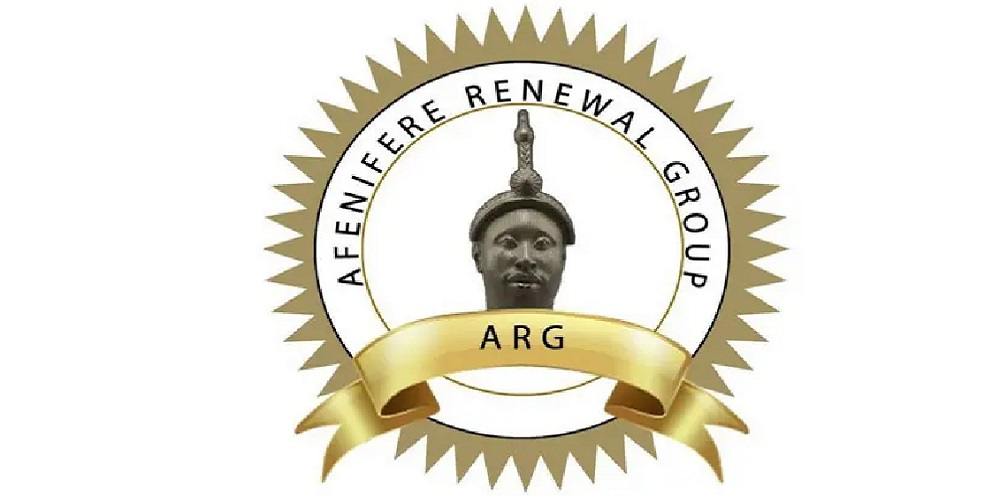
The pan-Yoruba socio-political organisation, Afenifere, has reemphasised that restructuring is the most potent instrument to tackle the socio-political and economic challenges that have long bedevilled the country.
The foremost Yoruba group, which also expressed concern about the resurgence of kidnapping and banditry, particularly in Yorubaland, has called for immediate action, stressing that the issue of state police must be prioritised.
Afenifere made this declaration at the conclusion of its caucus meeting held at the residence of its national leader, Pa Reuben Fasoranti, in Akure, the Ondo State capital.
According to the group, in a communiqué signed by its National Publicity Secretary, Jare Ajayi, governors should make every effort to cooperate with the federal government so that the allocations to local governments can be implemented without delay.
“Given the prime position that security occupies in the life of any society, Afenifere once again called on the Federal Government and security agencies to redesign the security architecture in such a way that those responsible for security can thoroughly investigate its causes and address them decisively.
“In this regard, we are calling on the National Security Adviser (NSA), Mallam Nuhu Ribadu, to, in collaboration with state governors, urgently devise strategies to confront these challenges and bring them under control.
“While these efforts are ongoing, state governors, particularly in Yorubaland, should further strengthen the security network in the region due to the increasing threat of terrorism. For example, the personnel of Amotekun should be increased, properly trained, motivated, and well-equipped. Furthermore, modern technologies such as drones and other advanced tools to combat insecurity should be deployed,” the communique read partly.
News
Rainfall washes away newly constructed multi-million naira road in Edo State

A road project recently facilitated by the federal lawmaker representing Esan North-East/Esan South-East Federal Constituency in Edo State, Prince Henry Odianosen Okojie, has reportedly been washed away less than a week after completion.
The development was made public on Monday by MonITNG, a non-governmental organisation, through a post on its official X handle.
The organisation revealed that a section of the road collapsed following a single heavy rainfall, raising questions about the quality of materials and workmanship used in the construction.
MonitNG explained that millions of naira were spent on this project “yet it couldn’t withstand even one rainfall. This is unacceptable,” the organisation stated.
However, they called on the Edo State Governor, his deputy, as well as anti-graft agencies — the Independent Corrupt Practices and Other Related Offences Commission (ICPC) and the Economic and Financial Crimes Commission (EFCC) — to urgently launch an investigation into the road project.
The group stressed the need for accountability and transparency in the execution of public infrastructure, warning that continued tolerance of substandard projects would only worsen infrastructural decay in the country.
The statement read, “Our team visited the newly completed General Hospital Road in Uromi, Edo State, facilitated by Hon. Prince Odi Okojie.
“Shockingly, less than a week after completion, parts of the road have already washed away after a single heavy rainfall despite the millions of naira spent on the project.
“This is a clear case of substandard materials and poor supervision. The road was meant to serve the community for years not days,” they stated.
MonITGN said that taxpayers deserve durable infrastructure, not quick-fix projects that crumble at the first sign of weather stress.
“Quality materials and proper engineering aren’t luxuries they are necessities. Roads are lifelines for economic activity, emergency access, and daily life. Cutting corners in construction not only wastes resources but endangers lives.
“We call on @m_akpakomiza, @IdahosaDennis, @icpcnigeria & @officialEFCC to urgently investigate this project.
“Accountability must be enforced. Edo people deserve better,” they added.
-
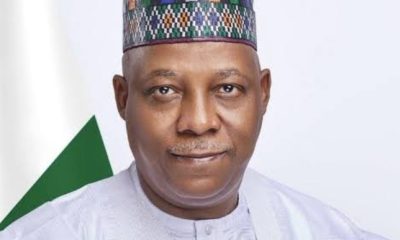
 News18 hours ago
News18 hours agoAPC opens up over alleged rift between Tinubu and his deputy, Shettima
-
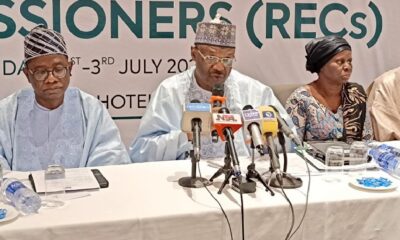
 News12 hours ago
News12 hours agoJust in: Presidency Insists INEC Chairman, Yakubu Not Sacked
-

 News17 hours ago
News17 hours agoVeteran comedian opens can of worms, says I ‘ve caught many of my friends wives flirting with big men, govs
-
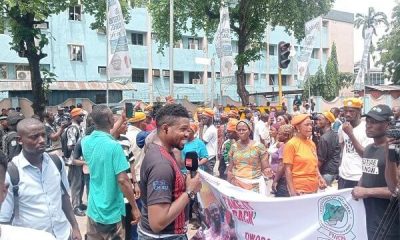
 News13 hours ago
News13 hours agoJUST IN: Police Nab leaders of April 7 nationwide protest
-

 News17 hours ago
News17 hours agoIn Burkina Faso we’re not in a democracy, but in a revolution, No Country develops in democracy” ~ Captain Ibrahim Traore.
-

 News24 hours ago
News24 hours agoPolice warn against planned nationwide protest
-

 News12 hours ago
News12 hours agoJust in: Saudi Arabia Suspends Visa Issuance to Nigeria, 13 Other Countries
-

 Economy17 hours ago
Economy17 hours agoSEE Black Market Dollar To Naira Exchange Rate In Lagos, FCT, April 7th 2025





